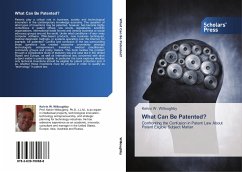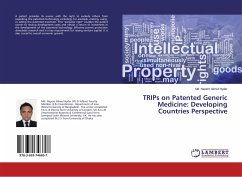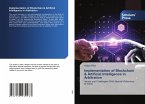Patents play a critical role in business, society and technological innovation in the contemporary knowledge economy. The question of what types of inventions may be patented, however, has become highly contentious in patent offices, law courts, legislatures, scientific organizations, international trade forums and various business or social advocacy groups around the world. Under what conditions if any may computer software, DNA-based products, new business techniques, medical diagnostic methods, or systems operating over the Internet, for example, be patented? Conflict and confusion in the law surrounding these questions has created excessive uncertainty amongst technologists, entrepreneurs, investors, medical practitioners, community groups and policy makers. This book tackles the problem through a comparative study of statutory law and case law in the United States and Europe, as well as international law, concerned with what subject matter is patent eligible. In particular the book explores whether only technical inventions should be eligible for patent protection and, if so, whether those inventions must be physical in order to qualify as technology in patent law.








